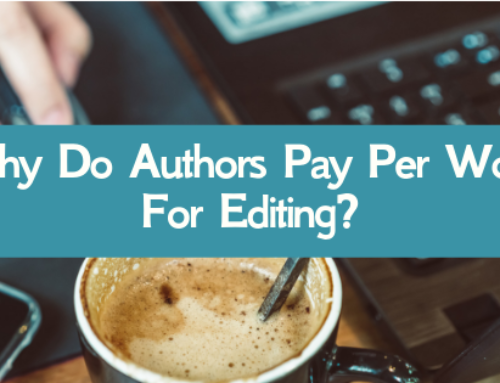
Book editing is one of the most important parts of the publishing process. Whether you are working with a traditional publisher or self-publishing, having a book editor correct your work greatly improves the quality of your book.
In this article, we will explore what editors do for traditionally published books and whether you need an editor for your self-published book.
What Does a Book Editor Do for Traditionally Published Books?
Editors play a vital role in the production of books published by traditional publishing houses. They ensure that the book is polished and ready for publication by addressing various aspects of the manuscript, such as grammar, spelling, punctuation, and overall clarity. Additionally, editors work closely with authors to refine their ideas and improve the overall structure and flow of the book.
The Editing Process for Traditionally Published Books
The editing process for traditionally published books includes several required steps. Each book will go through at least four types of editing:
Self-Editing
Before submitting their manuscript to an editor, authors will complete their own self-editing. This involves reviewing and revising their work to eliminate obvious errors or inconsistencies. While self-editing is an essential step, it’s important to note that it’s not a substitute for professional editing.
Developmental Editing
Developmental editing focuses on the big picture of a book. Editors in this stage work with authors to shape the overall structure, plot, and characters. They provide feedback on areas that need improvement and help authors develop their ideas to create a compelling and coherent story.
Copy Editing
Copyeditors complete a detailed review of the manuscript and focus on grammar, punctuation, spelling, and sentence structure. This edit ensures the book adheres to the rules of language and corrects any errors that may distract readers from the content.
Galley Edit
In the galley edit stage, editors review the book in its final typeset format. They check for any remaining errors or formatting issues to ensure that the book is ready for printing and distribution.
Do I Need a Book Editor If I’m Self-Publishing?
While self-publishing gives authors more control over the publishing process, it doesn’t eliminate the need for professional editing. In fact, hiring an editor is essential in enhancing the quality of your self-published book.
The editing process for self-published books isn’t quite as intense as the process outlined above for traditionally published books. However, if an author is able to invest in a few rounds of professional editing, they can significantly improve the quality of their book.
Receiving objective feedback is one of the key benefits of hiring an editor. Professional editors have trained eyes for detail and can identify areas in your manuscript that may need further improvement. An editor will also help polish your writing, so it’s more accurate, engaging, and appealing to readers.
Furthermore, if you work with a developmental editor, they can help with refining the overall structure and organization of your book. They can provide suggestions on how to improve the flow of your content to make it easier for readers to follow and comprehend. This attention to detail can make a significant difference in the overall reading experience.
Edited Books Are the Best to Read
When it comes to choosing what to read, there is no denying that edited books offer a multitude of advantages.
One of the key benefits of reading edited books is the assurance of quality. The editing process minimizes the chances of errors or inaccuracies. This attention to detail ensures that readers can trust the information presented in the book.
Self-Editing Is a Good Start, But It’s Not Enough
Self-editing is an important first step toward improving your book, but it shouldn’t be the only step in your book’s editing journey. While self-editing allows you to review and revise your work on your own, having the expertise of an editor greatly enhances the quality of your book.
With an editor’s guidance, you can refine your ideas, polish your prose, and create a final product that truly resonates with your readers. So, while self-editing is a crucial first step, don’t underestimate the importance of working with an editor. Even the most skilled writers benefit from a fresh set of eyes and a professional editor’s insights.
Is an Editor a Ghostwriter?
It’s important to note that an editor and a ghostwriter are not the same. While an editor focuses on refining and enhancing an author’s existing work, a ghostwriter is someone who writes on behalf of another person. Ghostwriters create content from scratch, whereas editors work with already written material.
If you work with a ghostwriter for your self-published book, you’ll also want a a professional editor to to polish your manuscript.
Discover more from Mill City Press
Subscribe to get the latest posts sent to your email.













Leave A Comment